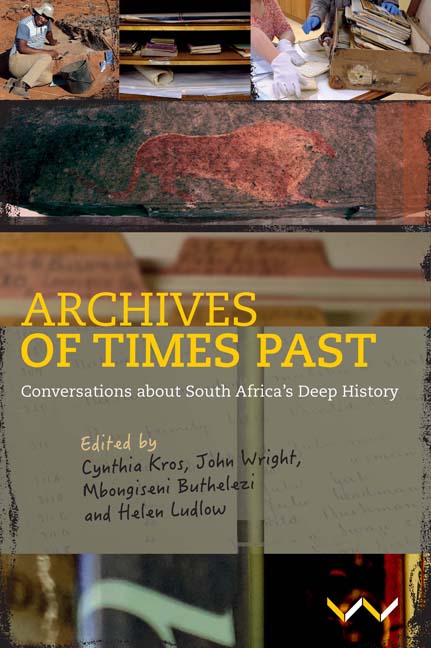Book contents
- Frontmatter
- Contents
- List Of Illustrations
- Acknowledgements
- Editorial Note
- Map
- PART I FIRST THOUGHTS ABOUT THE ARCHIVE
- PART II COMMENTARIES AND CONVERSATIONS
- PART III BECOMING EXPLORERS
- PART IV ENGAGING WITH ARCHAEOLOGY AND ROCK ART
- PART V CONFLICTING OPINIONS
- PART VI FURTHER THOUGHTS
- Glossary
- Contributors
- Index
Chapter 6 - An Archive in an Old Tin Trunk
Published online by Cambridge University Press: 26 May 2022
- Frontmatter
- Contents
- List Of Illustrations
- Acknowledgements
- Editorial Note
- Map
- PART I FIRST THOUGHTS ABOUT THE ARCHIVE
- PART II COMMENTARIES AND CONVERSATIONS
- PART III BECOMING EXPLORERS
- PART IV ENGAGING WITH ARCHAEOLOGY AND ROCK ART
- PART V CONFLICTING OPINIONS
- PART VI FURTHER THOUGHTS
- Glossary
- Contributors
- Index
Summary
SHOPPING LISTS AND NOTEBOOKS
The story starts – for me, at least – with exploring David-Frédéric Ellenberger's collection of papers in the Morija Museum and Archives (MMA) in Lesotho. In the early 2010s, I would make my way to the MMA building in Morija, and ask to see the Ellenberger papers. Some of these were kept in an old tin trunk. The trunk had its own story. The Ellenberger family once used it to transport David-Frédéric's papers between France, Lesotho and South Africa. In the MMA, the trunk formed part of his archive. To find anything in it, I had to dig around. I am an archaeologist, so it seems right that my first encounter with this archive felt like an excavation.
Ellenberger was a French-speaking missionary who worked in Lesotho from 1860 until 1905. In 1912, he published a major book, History of the Basuto, Ancient and Modern. It is still widely used today by people researching the history of southern Africa before the colonial era. There is an important story to be told here about who Ellenberger was and why he wrote the book. It starts with the papers in the old trunk.
Ellenberger's papers are organised into files – newspaper clippings, letters, notebooks, and folders of loose pages on subjects such as early ‘Bantu’ history and Basotho migrations. (‘Bantu’ was a term used by many white writers and some black writers from the late 1800s onward to refer to black people in southern Africa.) To use the archive, I had to carefully remove and sift through these files. The museum had a catalogue giving general descriptions of the files, but it did not always list individual items. So, to find a particular document (if I even knew it was there), I had to sort through all the material in the trunk. It could sometimes take hours or even days to find what I was looking for. When I was working in the archive, I felt that I had to meander through it – that is, take a slow walk following where the documents led me. I had to accept that sometimes I would be taking a very long way round. I enjoyed it because it was a kind of exploration.
- Type
- Chapter
- Information
- Archives of Times PastConversations about South Africa's Deep History, pp. 76 - 87Publisher: Wits University PressPrint publication year: 2022



